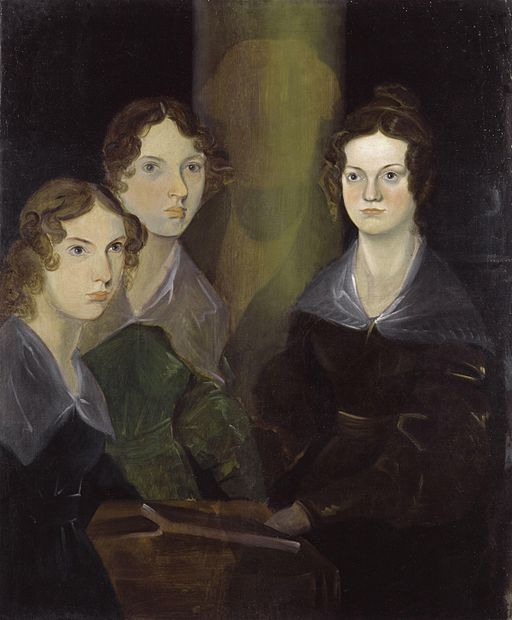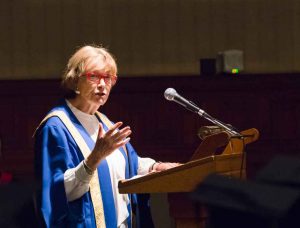Today’s 2018 Guardian University Guide league tables include Birkbeck, University of London, for the first time, with Philosophy ranking 3rd in London and 17th in the UK, while English as well as Modern Languages and Linguistics feature in the capital city’s top 10.
However, the value of what Birkbeck offers in changing lives is not always well represented in league tables and rankings. Birkbeck remains true to its founding mission of widening access to education for all Londoners and our evening teaching makes Birkbeck uniquely different from all other universities included in the Guardian’s ranking.
Many of our full-time undergraduate students are the first in their families to study at university, or are returning to education after many years of lacking the confidence to do so. The Guardian league tables measure, among other things, the qualifications that students arrive at university with. Across the sector, just 2% of full-time undergraduates begin university without A-Level or equivalent qualifications. But Birkbeck demonstrates an unstinting commitment to accepting applicants with non-traditional qualifications: 35% of our part-time and 21% of full-time students arrive without A-Level or equivalents.
And our students have outstanding success in progressing to further study and rewarding, fulfilling careers, with 95% of our full-time students and 97% of part-time students in employment or further study upon graduation.
Birkbeck’s appearance for the first time in this ranking is a consequence of the College’s innovation in offering three year evening undergraduate degree courses which are classified as full-time.
Many years of hard work have gone in to establishing Birkbeck’s full-time undergraduate degree programme: in less than a decade the College has gone from having no full-time undergraduates to over 3,000. However, like all other Birkbeck undergraduate courses, they are accessible to motivated students without formal qualifications, and most importantly, take place in the evening, allowing students to work during the day.
Birkbeck is a research-led institution and this directly informs our teaching of predominantly non-traditional students but the Guardian’s league tables do not take research metrics in to account. Our scholarship informs public policy, delivers scientific advances, supports the economy, promotes culture and the arts, and makes a positive difference to society. Over half of our research was in the top 20 in the UK in the most recent REF exercise and our 40+ research centres and 700+ research students play a vital role in our success. Birkbeck has corresponding excellence, too, in postgraduate programmes, which have a superb reputation both nationally and internationally.
The College’s world-leading reputation for both research and teaching is well established. Birkbeck has been ranked in the top 250 universities worldwide in the latest THE World University Rankings and has been placed within the world’s elite institutions in a number of subjects in the QS World University Rankings by Subject, published earlier this year.
In the most recent Research Excellence Framework (REF) Birkbeck was ranked 30th nationally in terms of research intensity, with three departments in the top 10 nationally. Birkbeck’s academic staff are active researchers, many with world-leading reputations, and no fewer than 83% of the eligible academic staff were returned to the REF.
Birkbeck’s track record of opening routes to highly-skilled employment, in particular for students beginning their studies without standard academic qualifications, demonstrates that learning gain is a core aspect of teaching excellence at Birkbeck. Our mission is to make previously unthinkable life choices thinkable and achievable; a transformative impact demonstrated by the core metrics and the high proportion of undergraduate students who go on to postgraduate study.
“We offer all our undergraduate students, of which a sizeable proportion come to us with no formal qualifications at all, rigorous teaching and a transformational intellectual experience, enabling them to achieve a University of London qualification,” said Professor David Latchman CBE, Master of Birkbeck.
“Since its inception, Birkbeck has offered a distinct opportunity for working Londoners to gain qualifications through evening study. Nearly 200 years later, the College is still unlike any other higher education institution in the UK today – a distinctiveness of which we are proud.”
In issuing its league tables today, where Birkbeck entered the rankings at 113th, the Guardian University Guide noted: “Birkbeck is ranked alongside other universities in the league tables for the first time this year. It has not appeared in our league tables before now because its full-time provision is a relatively new development. The majority of Birkbeck students still study part-time, alongside full-time students. However, Birkbeck remains unique in that all its provision (full-time as well as part-time) takes place in the evening. This needs to be kept in mind when making comparisons with the rest of the sector.”


